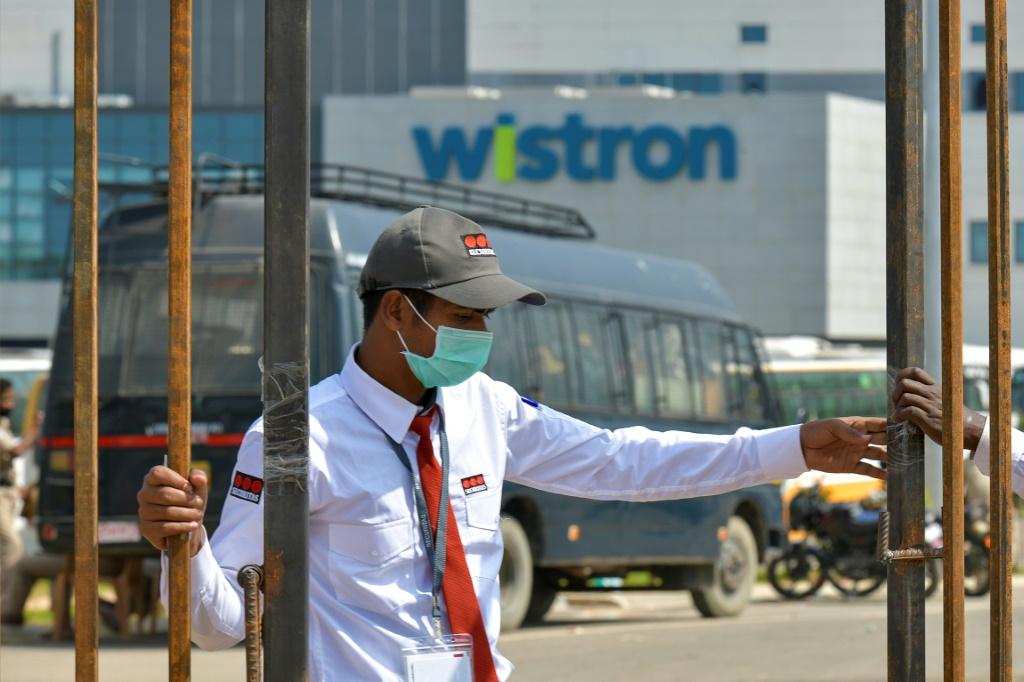Authorities vowed to crack down on workers who went on a violent rampage at a Taiwanese-run iPhone factory in southern India over allegations of unpaid wages and exploitation, with 100 people arrested so far.
The workers rioted Saturday at Wistron Infocomm Manufacturing's facility on the outskirts of Bangalore, India's IT hub, with videos of the violence showing glass panels smashed with rods and cars flipped on their side.
CCTV cameras, fans and lights were torn down, while a car was set on fire, footage shared on social media showed.
Local media reported workers saying they had not been paid for up to four months and were being forced to do extra shifts.
"The situation is under control now. We have formed special teams to investigate the incident," local police told AFP on Sunday, adding no-one was injured.
The deputy chief minister of Karnataka state, C.N. Ashwathnarayan, called the violence "wanton" and said his government would ensure that the situation is "resolved expeditiously".
"We will ensure that all workers' rights are duly protected and all their dues are cleared," he tweeted Saturday.
Wistron in Taiwan told AFP that "the incident was caused by people of unknown identities from outside who intruded into and damaged its facility with unclear intentions".
The company added in the statement in Chinese that it "pledged to follow local labour (laws) and other related regulations" to resume operations as soon as possible.
A local trade union leader alleged that there was "brutal exploitation" of factory workers in sweatshop conditions at the iPhone manufacturing plant.
"The state government has allowed the company to flout the basic rights," Satyanand, who uses one name, told The Hindu newspaper.
The factory employs some 15,000 workers, although a majority of them are contracted via staffing firms, according to local media.
Labour unrest is not uncommon in India, with workers paid poorly and given few or no social security benefits.
A sizeable number of manufacturing plants are part of the informal sector, which employs 90 percent of the vast nation's workforce.
Parliament in September passed updated labour laws that the national government said would strengthen their rights, but labour activists say the new legislation makes it harder for workers to strike.
Copyright AFP. All rights reserved.


